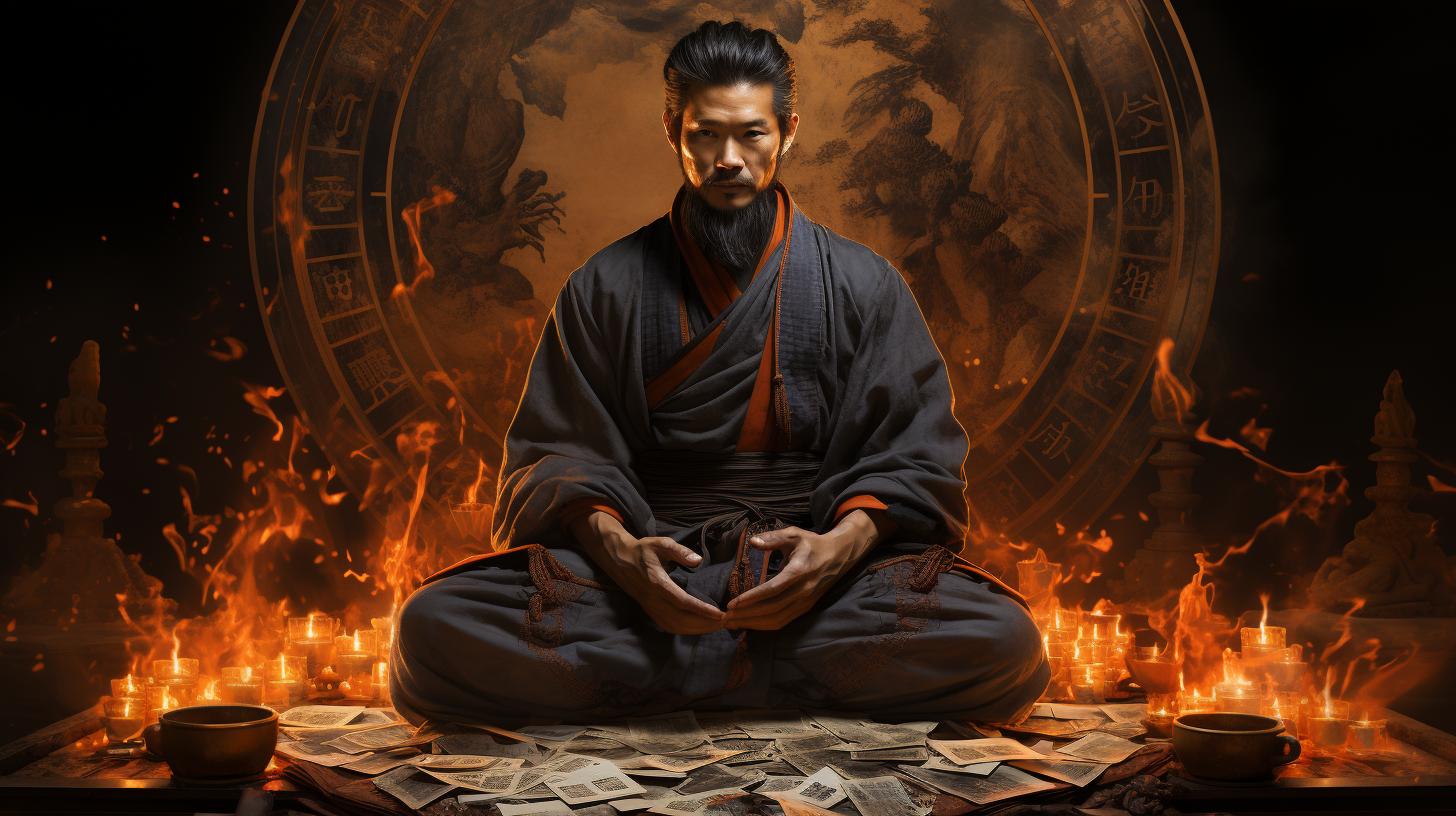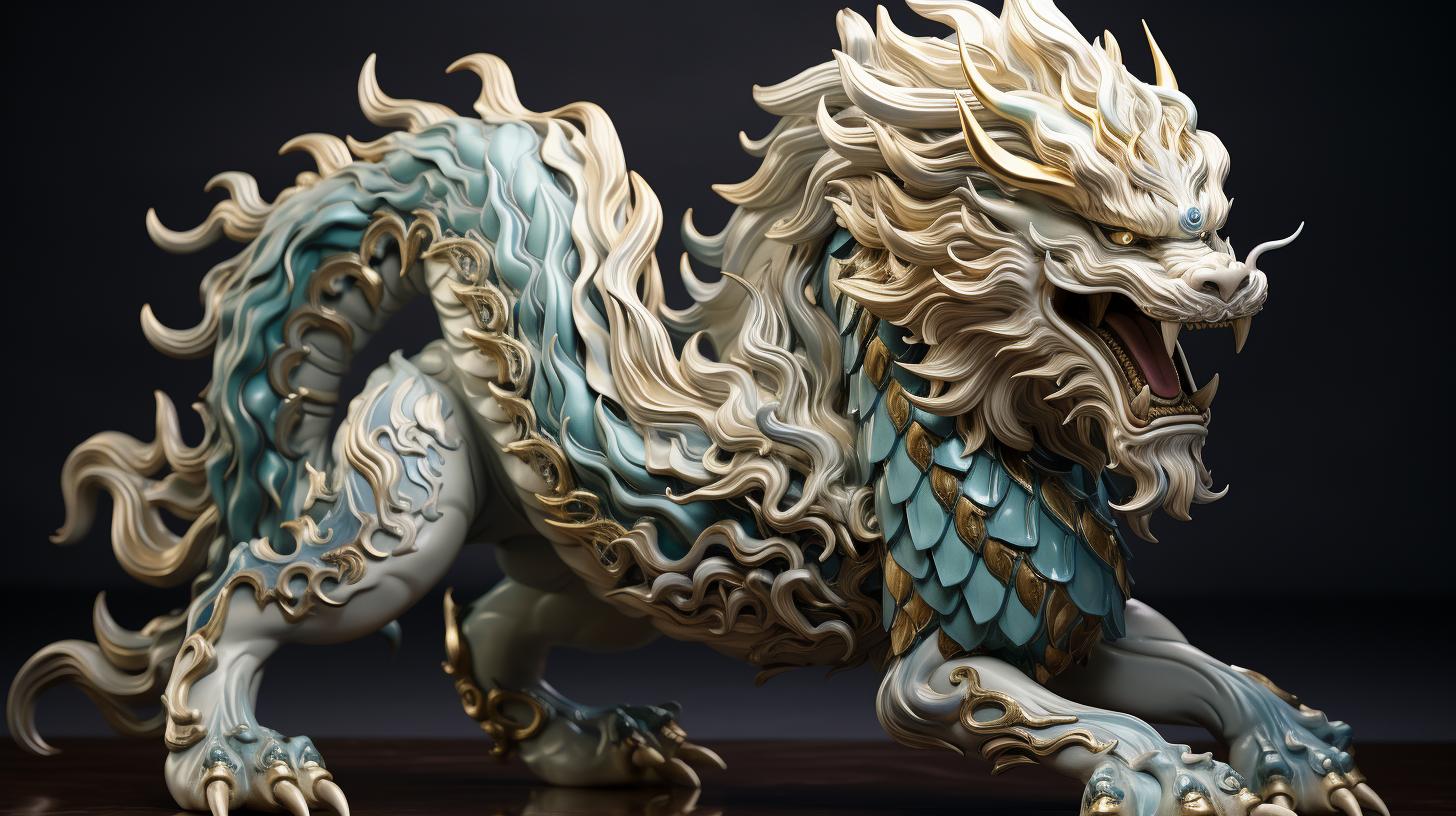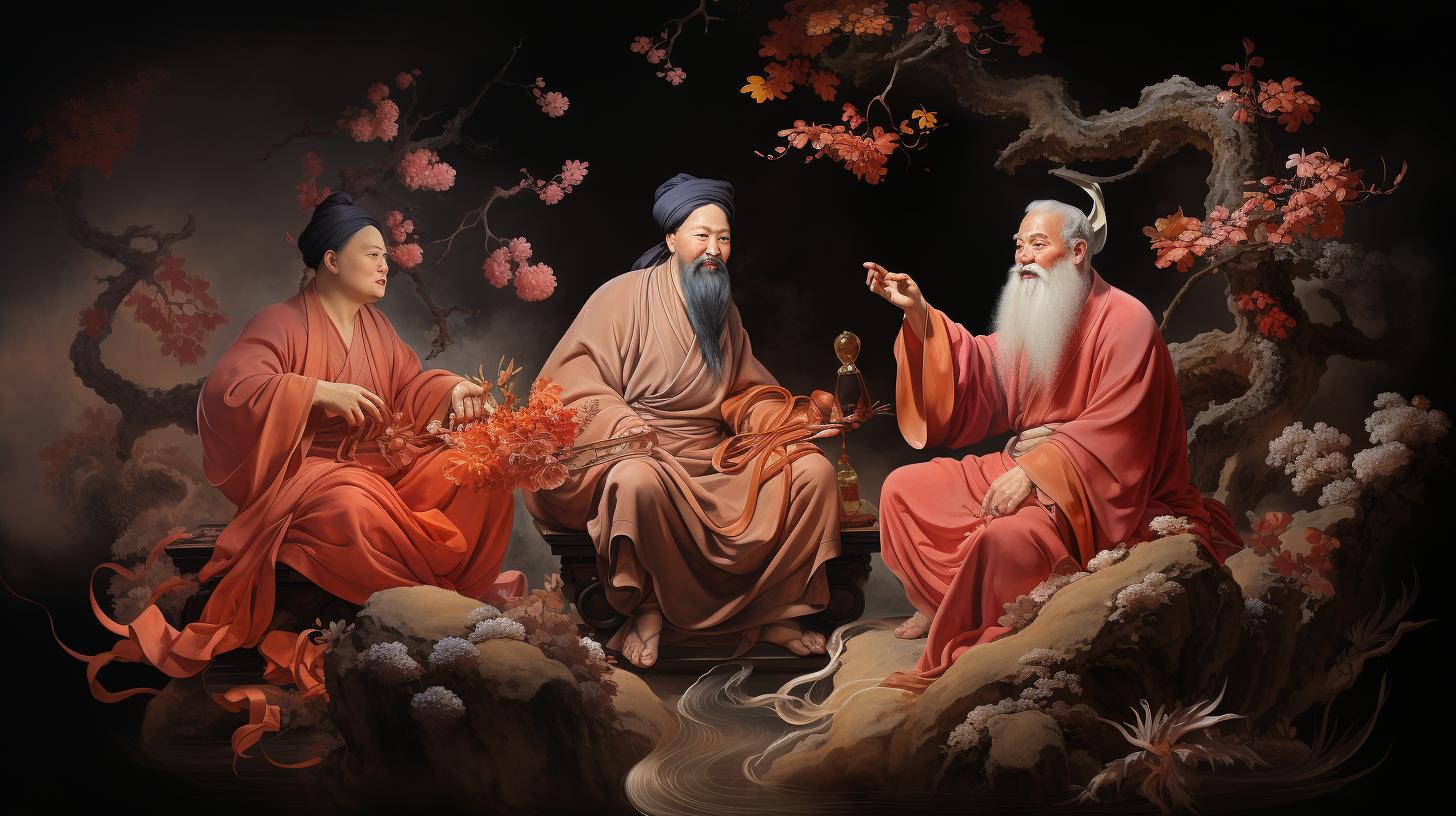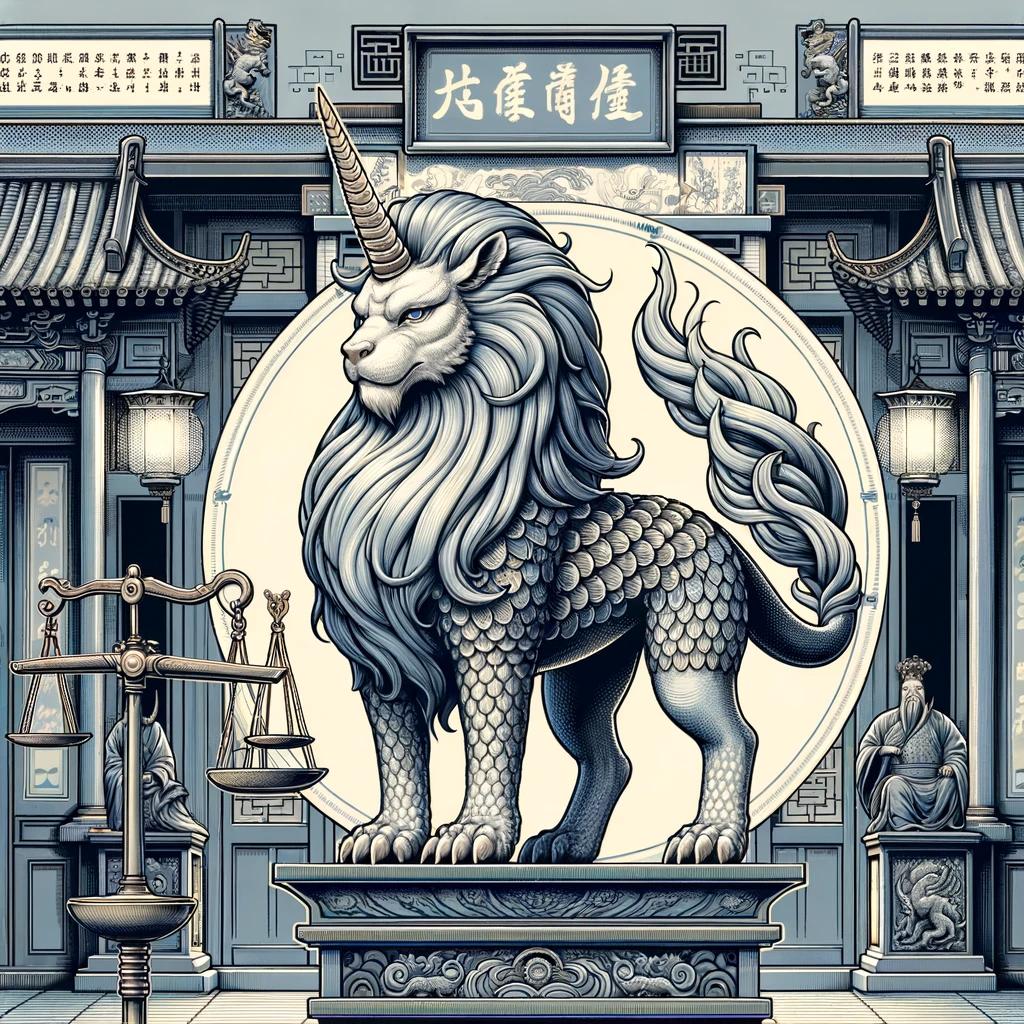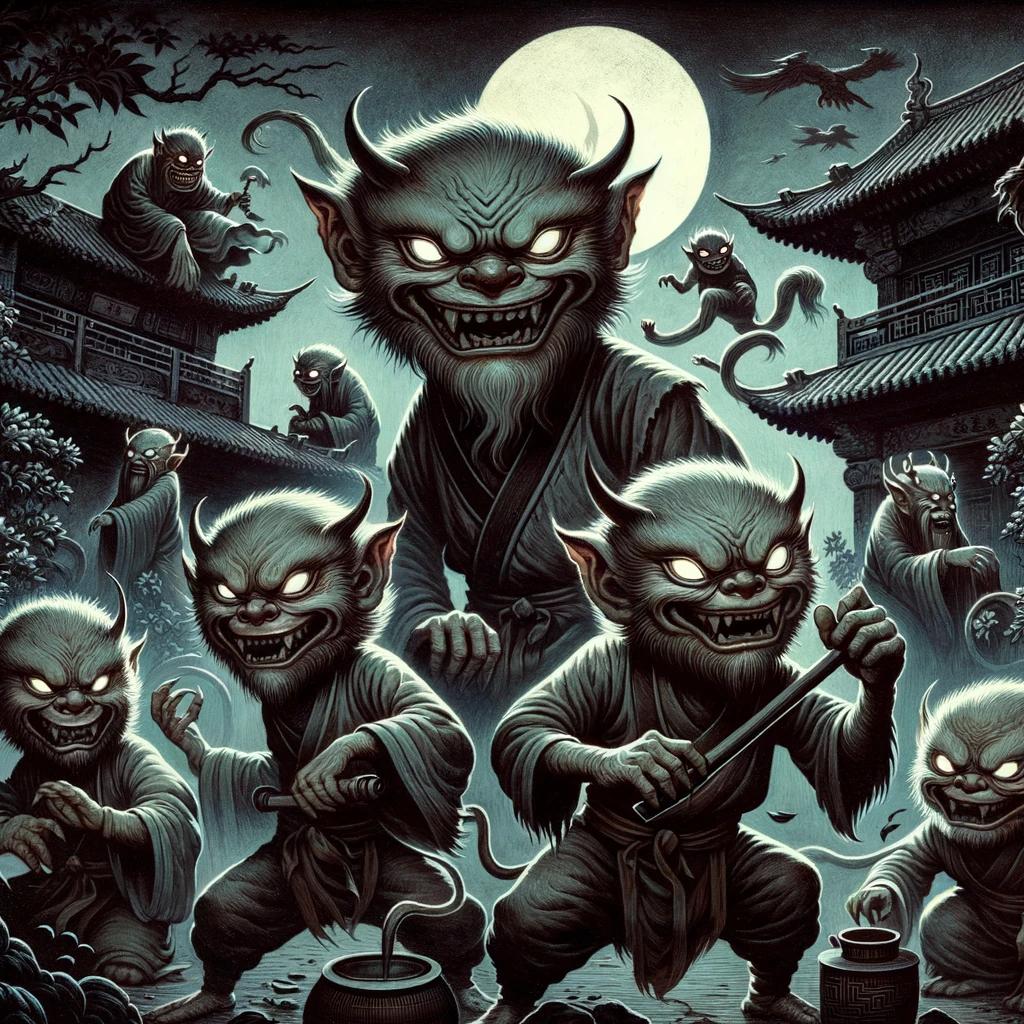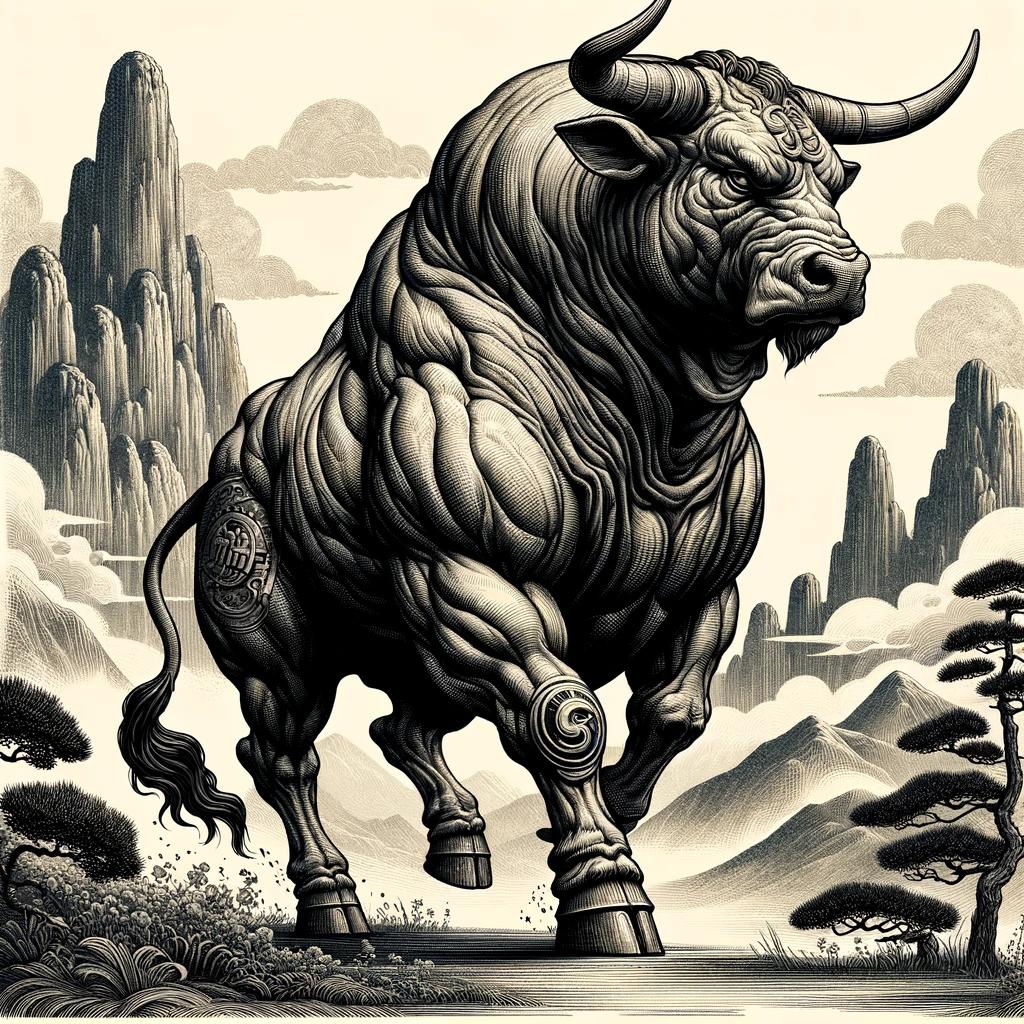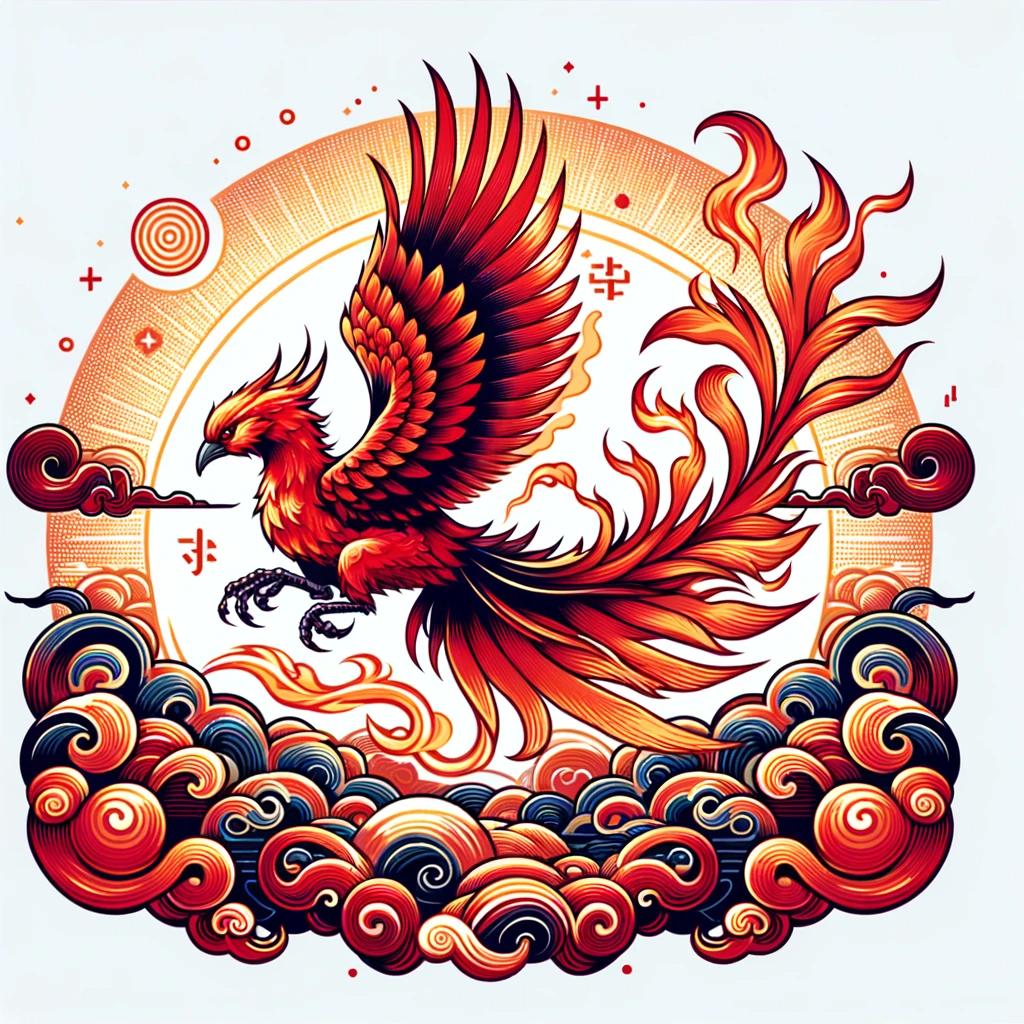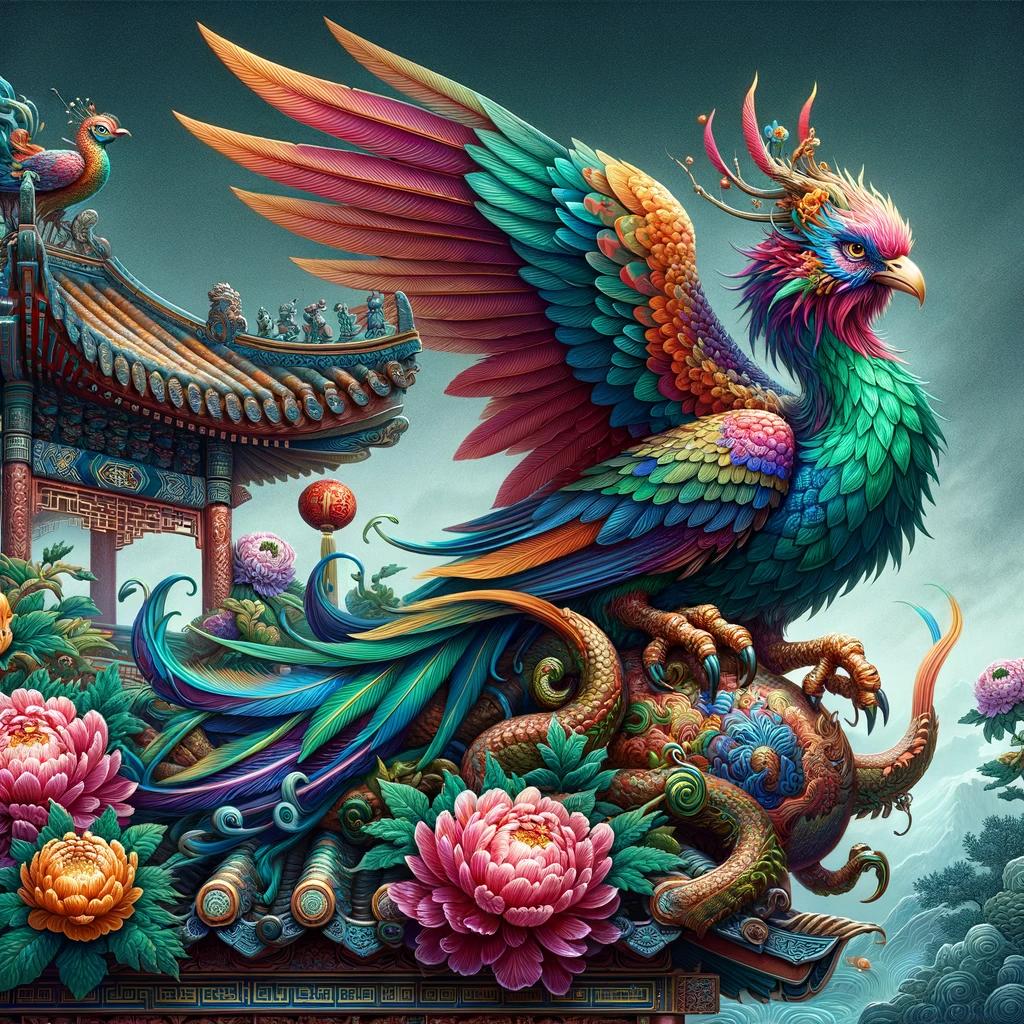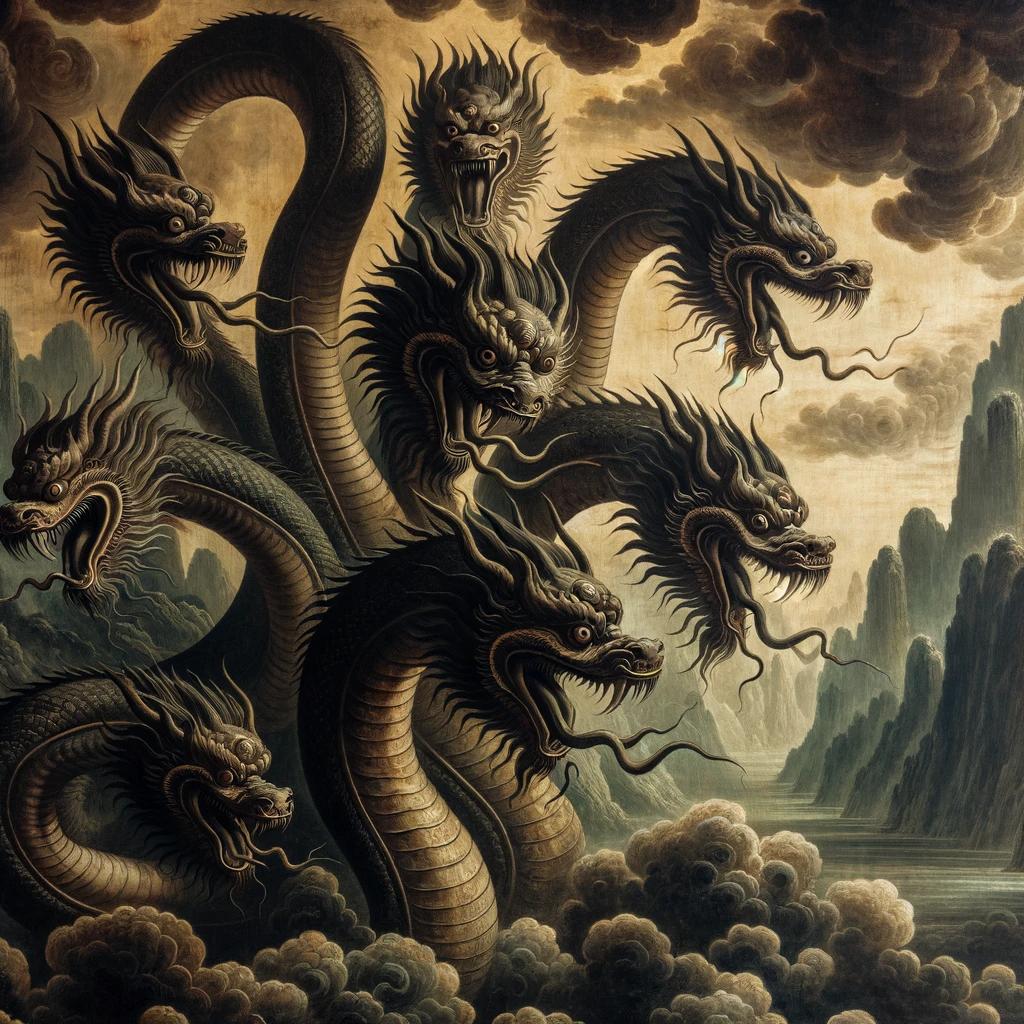Fuxi Chinese God: The Mythical Emperor and Creator of Humanity
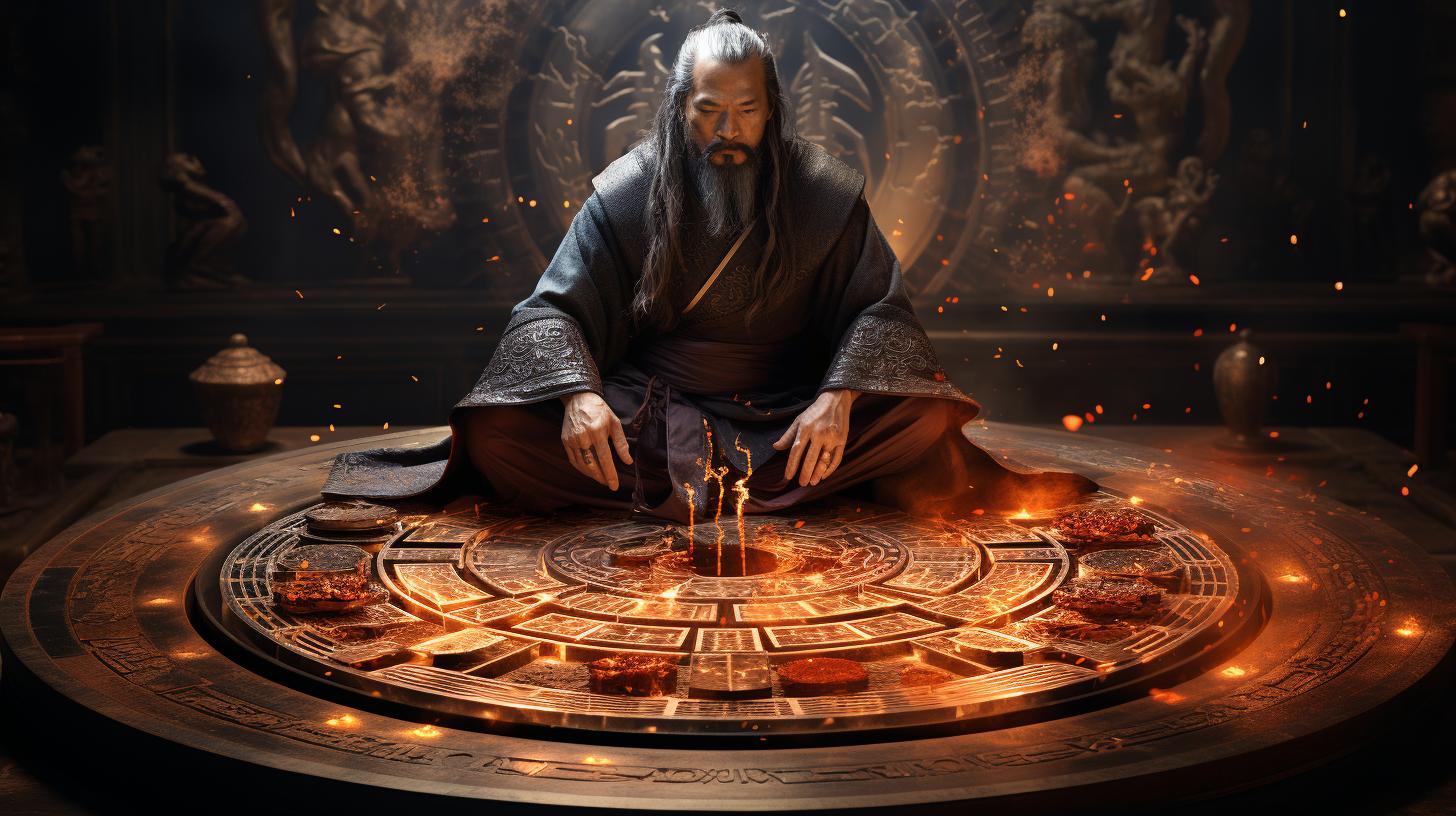
Fuxi Chinese god, a prominent figure in Chinese mythology, is hailed as the mythical first emperor of China and the creator of humanity. Depicted with a human head and a serpent body, Fuxi is credited with numerous accomplishments, including inventing music, hunting, fishing, domestication, cooking, and the Cangjie system of writing.
Married to his sister Nüwa and born of the goddess Huaxu, Fuxi’s cultural influence extends to fishing with nets and the invention of the Guqin musical instrument. Explore the legends, symbolism, and historical significance of Fuxi’s divine lineage and cultural contributions in this article.
Fuxi in Chinese Mythology
Fuxi occupies a significant role in Chinese mythology, being revered as the legendary first emperor of China and the creator of humanity. The stories surrounding Fuxi depict his immense influence and contributions to Chinese civilization.
This section delves into three key aspects of Fuxi’s mythological significance: the creation of humanity, his divine marriage to Nüwa, and his standing as the first emperor of China.
The Creation of Humanity by Fuxi
According to Chinese mythology, Fuxi played a pivotal role in the creation of humanity. It is believed that Fuxi transformed himself into a human form, possessing a head resembling a human and a serpent body.
With his divine wisdom and knowledge, Fuxi imparted crucial skills to his subjects, including cooking, hunting, and fishing. He offered the first sacrifices and introduced the fundamental aspects of civilization to the early Chinese people.
Fuxi and Nüwa: The Divine Marriage
Fuxi’s union with his sister Nüwa holds immense importance in Chinese mythology. They are regarded as the progenitors of humanity, and their marriage symbolizes the union of Yin and Yang, the two complementary forces that govern the universe.
Together, Fuxi and Nüwa nurtured and guided their descendants while fostering harmony and balance in the world.
Fuxi as the First Emperor of China
In Chinese mythology, Fuxi is revered as the first emperor of China, bestowing upon him a position of great authority and leadership. His reign marked the transition from a primitive society to a more organized civilization.
Fuxi established the groundwork for governance, social order, and cultural development in ancient China, setting the stage for future dynasties and shaping the country’s rich history.
Fuxi’s Roles and Accomplishments
Fuxi, a prominent figure in Chinese mythology, holds a significant place in history due to his various roles and accomplishments. His contributions to society encompassed a wide range of domains, making him a revered and influential figure throughout Chinese culture.
Fuxi’s Contributions to Society
Invention of Music, Hunting, and Fishing
- Fuxi is attributed with inventing music, which became an integral part of Chinese culture and entertainment. His musical contributions resonated deeply and enriched the lives of his people.
- Another remarkable achievement of Fuxi was his invention of hunting techniques, which helped early Chinese communities in procuring food and surviving in the wilderness.
- Fuxi’s innovation extended to fishing as well, as he introduced techniques and tools that revolutionized the fishing industry, providing sustenance to his subjects.
Domestication and Culinary Skills
- Fuxi played a vital role in the domestication of animals, paving the way for agricultural practices and the development of a sustainable food supply.
His knowledge in this field contributed to the growth and stability of ancient Chinese societies.
- Furthermore, Fuxi is credited with teaching his subjects the art of cooking, introducing various culinary techniques that enriched their diet and enhanced their civilization.
The Cangjie System of Chinese Writing
- The invention of the Cangjie system of writing is one of Fuxi’s most significant accomplishments.
This system formed the foundation of Chinese written language, providing a means of communication and recordkeeping.
- Fuxi’s ingenuity in devising this system enabled the expression of thoughts, ideas, and history through written characters, playing a crucial role in the cultural and intellectual development of China.
Fuxi’s Cultural Influence and Innovations
Fishing with Nets and the Guqin Musical Instrument
- Fuxi’s legacy includes the introduction of fishing techniques using nets, which revolutionized the fishing industry and facilitated increased productivity in aquatic resource exploitation.
- In addition, Fuxi is renowned for inventing the Guqin musical instrument, contributing significantly to the Chinese musical tradition.
The melodious tunes of the Guqin resonated with deep cultural symbolism, expressive of the values and emotions cherished by the Chinese people.
Legacy in Chinese Folklore and Religion
- Fuxi’s profound impact took root in Chinese folklore and religious beliefs, where he is revered as a primordial god, symbolizing wisdom, creativity, and the orderly development of civilization.
- His richly woven mythology and cultural influence continue to inspire and shape Chinese customs, rituals, and artistic expressions, providing a historical and spiritual connection to the past.
Overall, Fuxi’s roles and accomplishments as a legendary figure in Chinese culture extend beyond mere mythological realms.
He left an indelible mark on society, elevating the arts, shaping cultural practices, and laying the foundation for key aspects of Chinese civilization as we know it today.
Fuxi and Nüwa: Mythological Relationship
Fuxi, the mythical Chinese god, shares a significant mythological relationship with Nüwa, his sister and wife.
This divine union holds a prominent place in Chinese mythology, contributing to the creation and development of humanity.
Fuxi’s Union with Nüwa and Family Background
Fuxi’s union with Nüwa emphasizes their role as the progenitors of the human race in Chinese mythology. According to ancient legends, the gods began to create human beings by combining their divine essence with clay.
Fuxi and Nüwa were the first deities to take on human-like forms and establish the foundation for human existence.
As siblings, Fuxi’s marriage to Nüwa may seem unconventional to modern sensibilities.
However, in ancient Chinese mythology and culture, the divine siblings symbolized harmony and balance. Their union represented the yin and yang, the complementary forces that bring about cosmic equilibrium and the harmonious coexistence of all things.
Fuxi’s Divine Lineage and Huaxu as Mother Goddess
Fuxi’s divine lineage traces back to the goddess Huaxu, who is believed to be his mother. Huaxu holds a significant role in Chinese mythology as the divine progenitor of the human race.
As the mother goddess, she personifies fertility and the nurturing aspects of life.
Fuxi’s connection to Huaxu further enhances his status and underscores his role as a pivotal figure in Chinese mythology.
The lineage from Huaxu to Fuxi symbolizes the transfer of cosmic power, wisdom, and authority, which Fuxi would later impart to his subjects in the mortal realm.
Symbolism of Fuxi’s Human-Serpent Hybrid Form
Fuxi’s unique depiction as a hybrid, with a human head and a serpent’s body, holds profound symbolism within Chinese mythology.
This hybrid form represents the divine union of heaven and earth, signifying the interplay between spiritual and earthly realms.
The serpent body symbolizes wisdom, longevity, and connection to the spiritual realm.
It also represents the cyclical nature of life and the eternal cycle of creation and destruction. Fuxi’s human head, on the other hand, signifies his role as a divine ruler and his connection to humanity.
Overall, Fuxi’s human-serpent hybrid form embodies the balance between transcendence and immanence, spirituality and earthly presence, making him a powerful and revered deity in Chinese mythology.
Fuxi in Chinese History and Society
Fuxi’s role in early patriarchal society holds significant historical and cultural importance.
As a revered mythical figure, he is believed to have laid the foundation for the hierarchical structure of ancient Chinese society. Fuxi symbolizes the ideals of male dominance and leadership, which shaped the societal norms and values during that era.
Fuxi’s Role in the Early Patriarchal Society
In the early patriarchal society, Fuxi was regarded as a patriarchal ruler and a symbol of authority. He established the concept of filial piety and set the precedent for obedience to elders and rulers.
Fuxi’s influence laid the groundwork for the hierarchical structure that prevailed throughout Chinese history, where the emperor held supreme power and society operated under strict social classes.
Fuxi’s Influence during the Zhou and Tang Dynasties
During the Zhou and Tang dynasties, Fuxi’s status as the first emperor of China and the mythical founder of civilization continued to shape Chinese society. His teachings on governance, morality, and societal order were embraced by successive rulers who sought to emulate his wisdom and leadership qualities.
Fuxi’s profound impact on Chinese governance and societal values endured throughout these dynasties and beyond.
Fuxi’s Significance in Ancient Chinese Culture
Fuxi’s significance in ancient Chinese culture cannot be overstated. Beyond his role as a historical ruler, Fuxi’s cultural legacy encompasses various aspects of Chinese life, including philosophy, religion, and the arts.
His contributions to music, writing, and culinary practices became integral parts of Chinese cultural heritage. Fuxi’s mythological status as the creator of humanity and his enduring presence in Chinese folklore solidify his position as a revered and venerated figure in ancient Chinese culture.
Legends and Stories Surrounding Fuxi
The mythology of Fuxi is adorned with captivating legends and stories that have endured throughout Chinese history. These tales shed light on Fuxi’s profound influence and offer glimpses into his divine nature and cultural significance.
The Myth of Fuxi Contemplating the River Diagram
One prominent legend surrounding Fuxi is the story of him meditating on the banks of the Luo River. During his contemplation, Fuxi observed the patterns formed by cracks on a turtle shell that had emerged from the river.
Inspired by these patterns, which resembled the ancient bagua (eight trigrams), Fuxi developed the concept of the Eight Trigrams, which formed the foundation of the I Ching or Book of Changes.
This legend highlights Fuxi’s profound wisdom and his role as a cosmic observer and interpreter.
Fuxi’s Connection to the Yellow River and Creation
Another significant story revolves around Fuxi’s association with the mighty Yellow River. It is believed that Fuxi played a vital role in regulating the flow of this important river, preventing devastating floods and enabling the growth of agriculture.
The Yellow River, often considered the cradle of Chinese civilization, holds strong symbolic ties to Fuxi’s role as the creator of humanity. This connection establishes Fuxi as a pivotal figure in the myths surrounding the origin and development of Chinese society.
Fuxi’s Reverence as a Primordial God and Mythical Figure
Fuxi is revered as one of the primordial gods in Chinese mythology. He holds a significant place among the mythical figures who shaped the early world. Fuxi’s divine lineage, wisdom, and contributions to various aspects of human life elevated him to a legendary status.
His significance extends beyond religious beliefs and encompasses historical, cultural, and philosophical dimensions. Fuxi’s revered position showcases his enduring influence as a figure of reverence and admiration in Chinese folklore and religious traditions.
Interpretations and Cultural Significance of Fuxi
The figure of Fuxi holds immense importance in Chinese culture and has been subject to various interpretations and cultural significance throughout history. Let’s explore some key aspects that shed light on the significance of Fuxi in Taoist and Confucian traditions, his symbolic meaning in the context of Yin-Yang and Five Elements, as well as his worship and temples in modern China.
Fuxi’s Representation in Taoist and Confucian Traditions
Fuxi’s mythical status has been integrated into both Taoist and Confucian traditions, influencing their philosophical and spiritual beliefs. In Taoism, Fuxi is revered as a deity associated with cosmic harmony, often depicted alongside Nüwa as a divine couple.
Taoist teachings regard Fuxi as one of the early celestial masters who nurtured the principles of balance and unity.
On the other hand, in Confucianism, Fuxi symbolizes the fundamental principles of social order and morality.
His accomplishments, such as the invention of writing and domestication, are regarded as significant contributions to the development of civilization. Confucian teachings promote Fuxi’s virtues of wisdom, benevolence, and righteousness as guiding principles for individuals and society.
Fuxi’s Symbolic Meaning in the Context of Yin-Yang and Five Elements
Fuxi’s symbolism aligns with the principles of Yin-Yang and the Five Elements, which are fundamental concepts in Chinese cosmology. The fusion of human and serpent forms represents the harmony between opposing forces, such as masculine and feminine energies, earth and heaven, and creation and destruction.
Furthermore, Fuxi’s association with the Five Elements—wood, fire, earth, metal, and water—reflects his connection to the natural world and the cyclical patterns of existence. Each element represents specific qualities and aspects of life, contributing to the holistic understanding of the universe.
Fuxi’s Worship and Temples in Modern China
In modern China, Fuxi continues to be venerated as a revered figure in various religious practices. Temples dedicated to Fuxi can be found in different regions, often attracting worshippers seeking blessings, guidance, and spiritual connection.
These sacred spaces serve as centers for rituals, prayers, and the preservation of Fuxi’s cultural legacy.
The worship of Fuxi entails paying homage to his wisdom, seeking his protection, and seeking harmony with the forces of the universe.
Rituals and offerings are made to honor Fuxi’s contributions and seek his blessings for prosperity, fertility, and overall well-being.
- Temples dedicated to Fuxi serve as cultural hubs preserving ancient rituals and traditions.
- Worshippers visit these temples to seek spiritual guidance and blessings.
- Rituals and offerings are performed to honor Fuxi’s wisdom and seek his protection.
- Attendees participate in ceremonies to promote harmony and balance in their lives.
In conclusion, Fuxi’s interpretations and cultural significance encompass his representation in Taoist and Confucian traditions, his symbolic meaning in relation to Yin-Yang and the Five Elements, and his worship in modern China.
The enduring reverence for Fuxi reflects the deep-rooted connection between Chinese culture, mythology, and spiritual beliefs.
.

